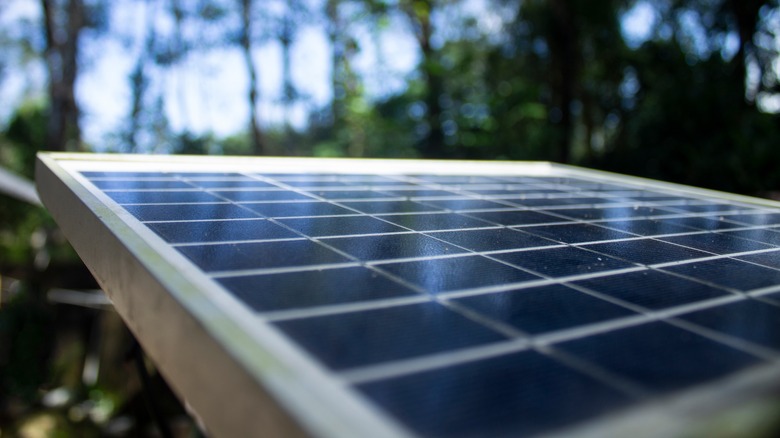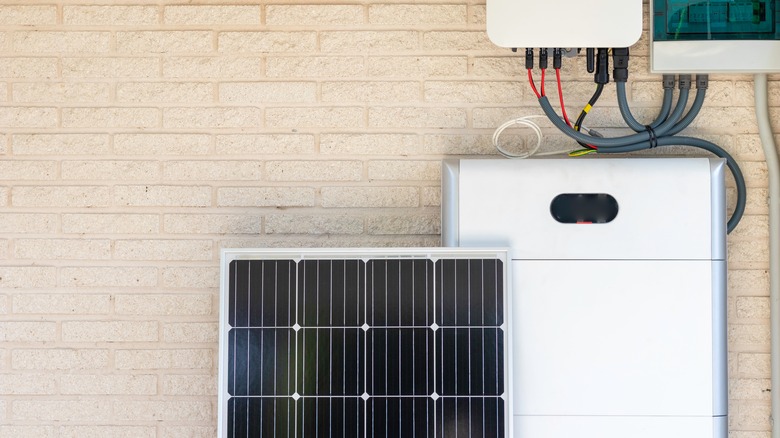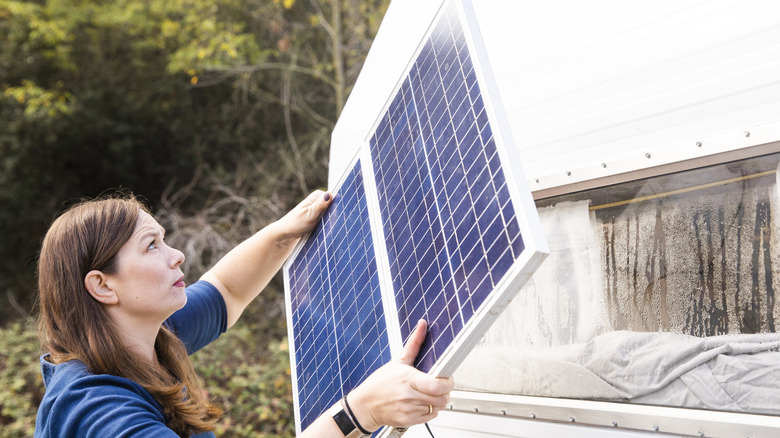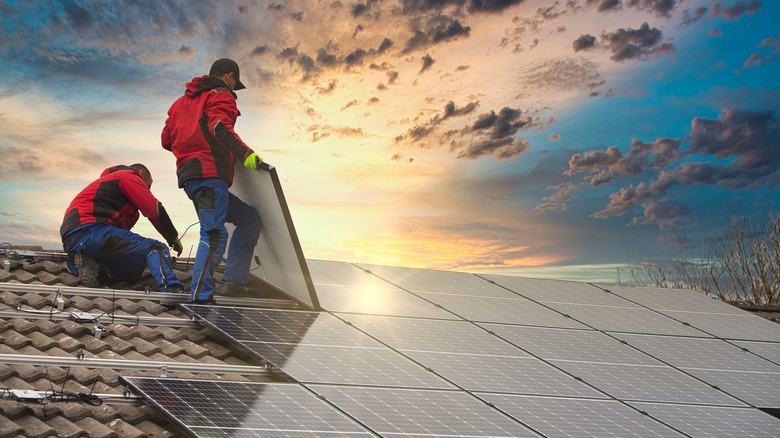Is Making Your Own Solar Panels Worth It?
In the never-ending quest for renewable energy, solar panels have become one of the bedrock implements for supplementing your home's electrical supply. Even when it's out of sight, the sun shines night and day somewhere, and if you've got a panel pointed at that big ol' lightbulb, you can get a healthy amount of juice flowing.
However, getting high-grade solar panels installed on your home can be a bit of an unpleasant production, not to mention expensive. Everything needs to be bolted to your roof or otherwise placed in an advantageous spot in your yard and angled to an optimal degree to capture the sun's rays. If you don't have the cash to have all of this done professionally, does that mean you just can't have solar power at all? Not necessarily — it is possible to make your own solar panels with some easy-to-source components and a bit of elbow grease. How exactly can you do such a thing, and more importantly, is creating something like a solar panel yourself safe and worthwhile?
Can you make your own panels?
Technically speaking, the entire body of a solar panel isn't the most important thing when it comes to receiving and processing sunlight. The part of a solar panel that actually receives light and translates it into energy is the solar cell, the dark, shiny bits that cover a panel's surface. There's a bit of complicated science to it, but the short version is that when these cells absorb light, electrons start moving, which in turn generates an electrical current. 60 of these cells adds up to a 400 watt solar panel, which can provide enough electricity to power small devices and appliances in ideal conditions.
You can buy a stack of standalone solar cells on Amazon for around $15. With those, along with a few vital installation tools, it's just a matter of mounting them onto a sturdy surface such as a plywood frame, then connecting them to the requisite electrical equipment — including an inverter, charge controller, and battery. It takes a decent amount of manual labor, not to mention some finesse with a soldering iron, but it is entirely possible for a DIY enthusiast.
Positives of homemade panels
The most obvious advantages of making your own solar panels are cost and not having to go through the whole process of hiring electricians and buying pre-assembled panels. In addition, homemade panels can be useful for small-scale projects, such as supplementing a generator or powering small appliances on the road. Since you're the one who decides how big your homemade panel is and how many solar cells it has, you could make a smaller, more portable panel that you can easily carry around with you.
Additionally, the mere act of assembling a panel from scratch can help you learn some interesting and helpful tips about electricity management. Once you've done it at least once, you can make another panel whenever you need to (resources permitting), which could be useful in a power emergency when the grid is down. If your panels ever break or malfunction, you already know how to repair them or replace them.
Negatives of homemade panels
It's one thing if you're using a homemade panel to power small devices or appliances, but if you're thinking of using a homemade panel to supplement or replace your home's electricity supply, you might want to think again. Wiring panels into a house's electrical grid is a very complicated process, one that isn't safe to undertake unless you have formal electrician training. Depending on where you live, it might not even be legal to wire a DIY panel into your grid, so the whole concept may be a nonstarter.
Even putting aside the potential safety and legality issues, there are also financial concerns. While a small DIY panel is cheaper than a pre-made one, attempting to scale up to the same size as a professionally-installed panel will incur much greater costs in parts and assembly. Mass-produced solar panels and their installation can be pricey, but that cost can be partially offset by green energy monetary incentives from your local government. DIY panels don't get those incentives, nor does your own workmanship come with any warranties.
In short, if you want to make your own solar panel as a cool little science project, it's a fun idea. If you want something that'll actually help your house go fully green, get a professional.



